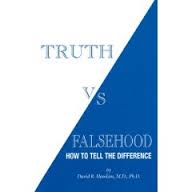记忆方法
记忆“falsehood”这个单词时,可以将其拆分为“false”和“-hood”两部分。首先,“false”意味着“错误的”,其次,“-hood”通常表示“状态”或“性质”。将这两部分结合起来,可以想象一个“错误的状态”或“错误的性质”,即虚假的事物或说法。这样就能形象地记住“falsehood”指的是“虚假、谎言”的意思。
以上内容由AI生成, 仅供参考和借鉴
英语词源
- falsehood (n.)
- c. 1300, falshede, "deceitfulness," also "a lie; that which is false," from false + -hood. Formed on the same pattern are Old Frisian falschede, Dutch valschheid, German Falschheit, Swedish falskhet. Former noun forms in English, now extinct, included falsage "wrongdoing" (late 15c.), falsdom "deceitfulness, treachery; a lie" (c. 1300), fals-lek "falsehood" (early 14c.), falsshipe "deceitfulness, dishonesty" (c. 1200).
权威例句
- 1. She called the verdict a victory of truth over falsehood.
- 她将这一判决称为真理对谬误的胜利。
- 2. to test the truth or falsehood of her claims
- 检验她陈述的真伪
- 3. The Prime Minister has made a statement closely approximate to a falsehood.
- 首相发表了一项几近谎言的声明.
- 4. Falsehood like a nettle stings those who meddle with it.
- 谎言似荨麻,玩弄会刺手.
- 5. He spoke a falsehood.
- 他撒了谎.
